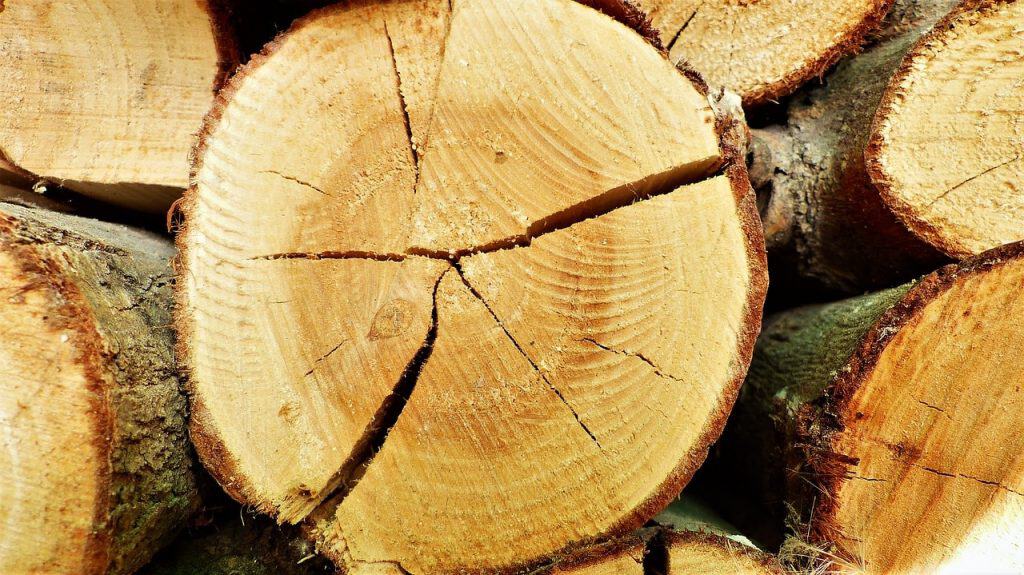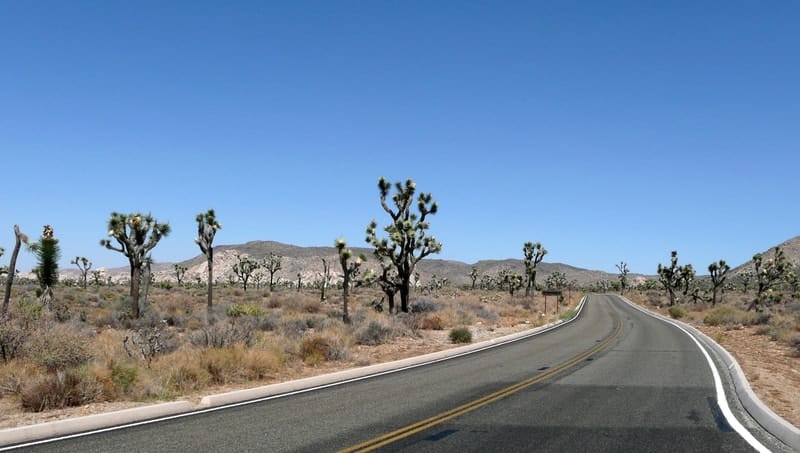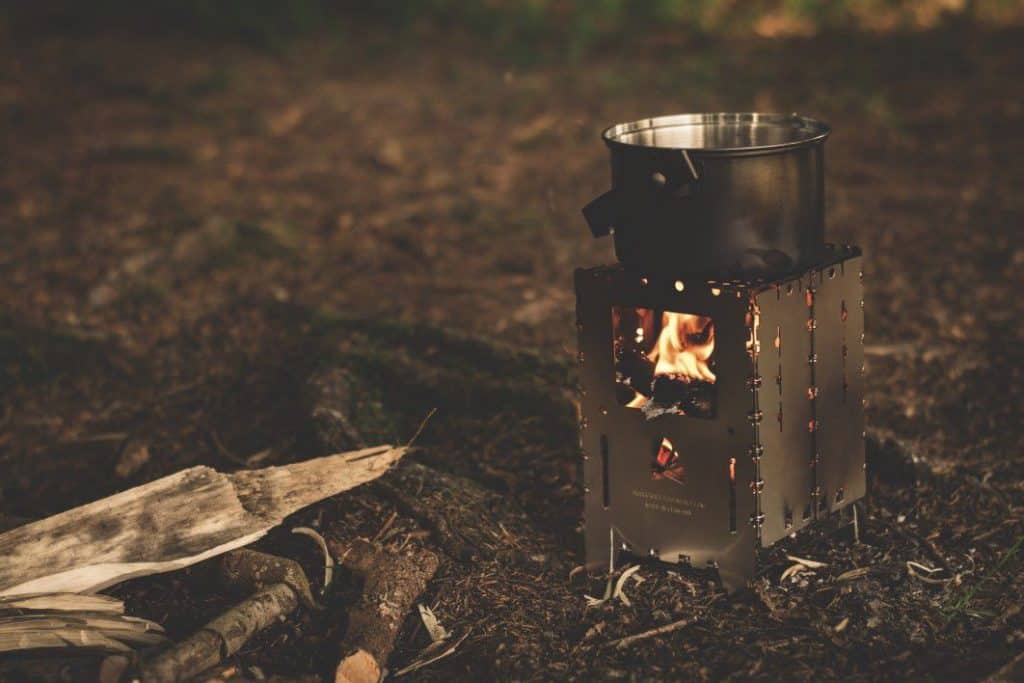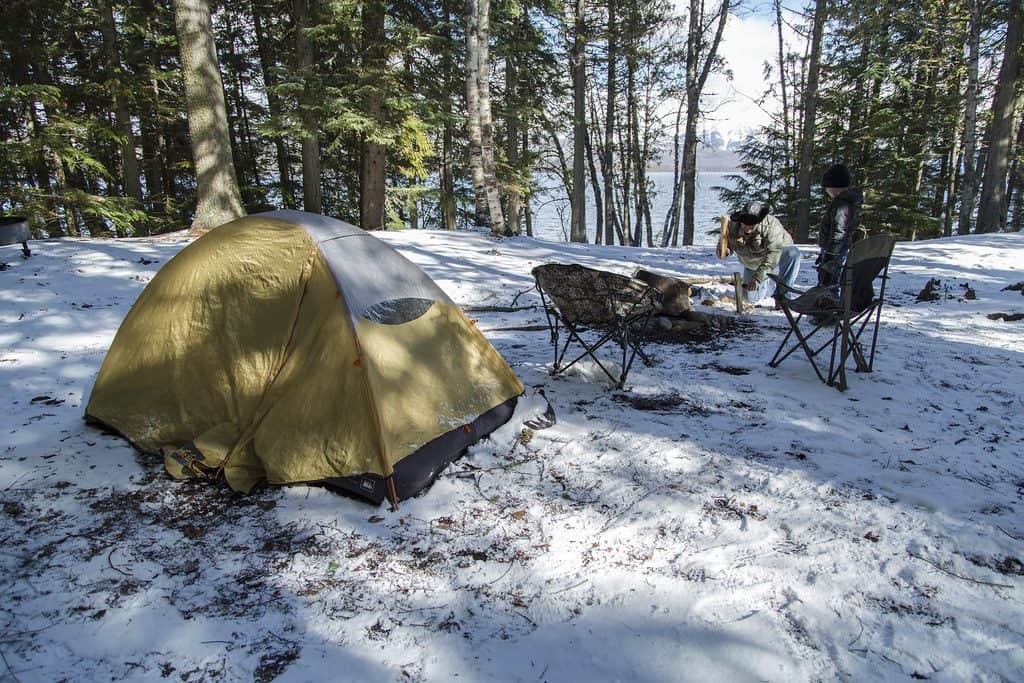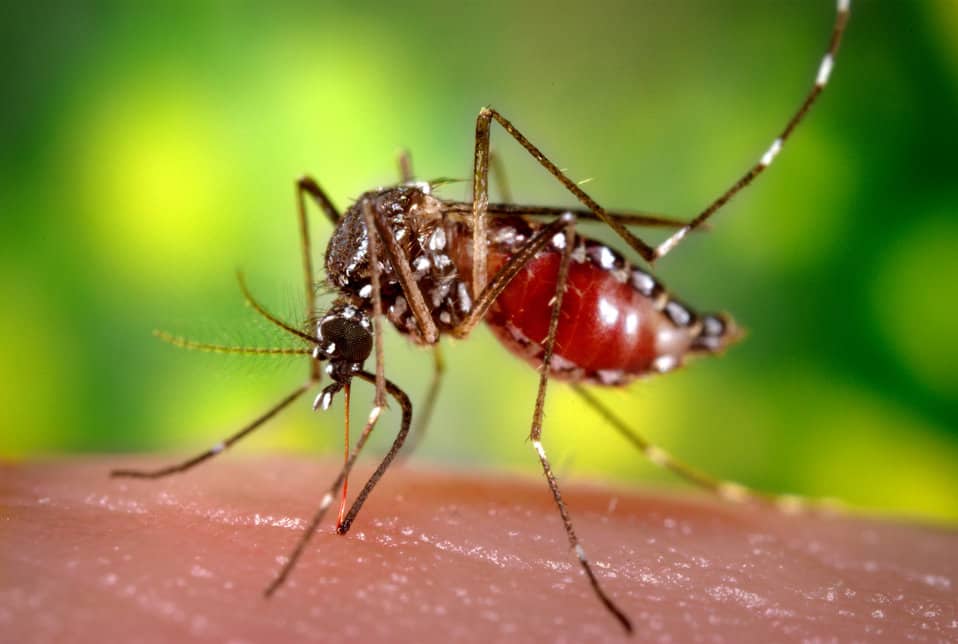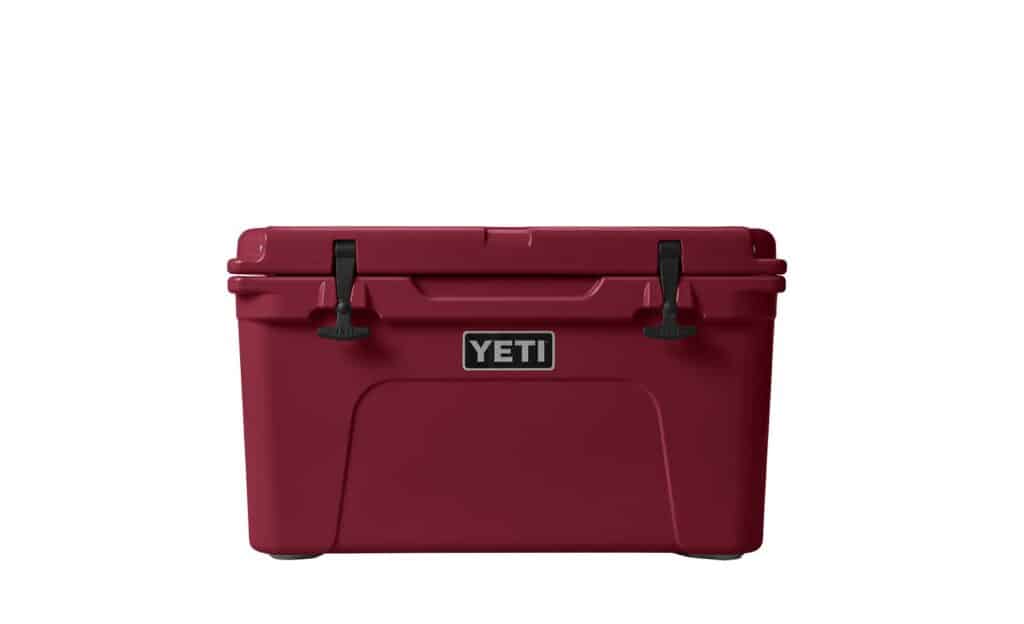Picking a safe campsite is one of the most important things in the wilderness. You could be killed if you do not follow these tips and tricks I will show you today.
5 Factors for choosing a safe campsite
- Water: Be close enough for drinking and far enough in case of flooding
- Weather: Stay away from wind and know the conditions you’re camping in
- Wood: Stay close to an area with lots of wood for your campfire
- Widowmakers: Stay far from dying trees and boulders
- Wildlife: Know the wildlife around you and prepare for it
Water
You should always pick a campsite next to a water source so you can use it for drinking and cooking. It’s also tons of fun if you want to go swimming!
If you set up camp near water, you will basically have an endless supply of drinking water if you get a water filter like a LifeStraw. It’s also great for cleaning your dishes!
Although these benefits do sound great, you must be far enough from the water so you are above the flood line.
Rivers can be especially dangerous during heavy rain and flash floods if you’re too close. Stay away from places where water collects or runs through.
It’s pretty easy to tell where water has been before. Just look for leaves, dirt, and debris that look unnaturally pushed in one direction. This is a sign of any previous flooding.
I also recommend you go to a river rather than a lake. Stagnant water tends to have way more bacteria and bugs. For example, mosquitoes lay their eggs only in still water.
Do not camp right under hills or a mountain where it looks like it’s prone to a rock slide. Try to camp on higher grounds.
Weather
Weather is extremely important, you must choose a campsite protected from the elements.
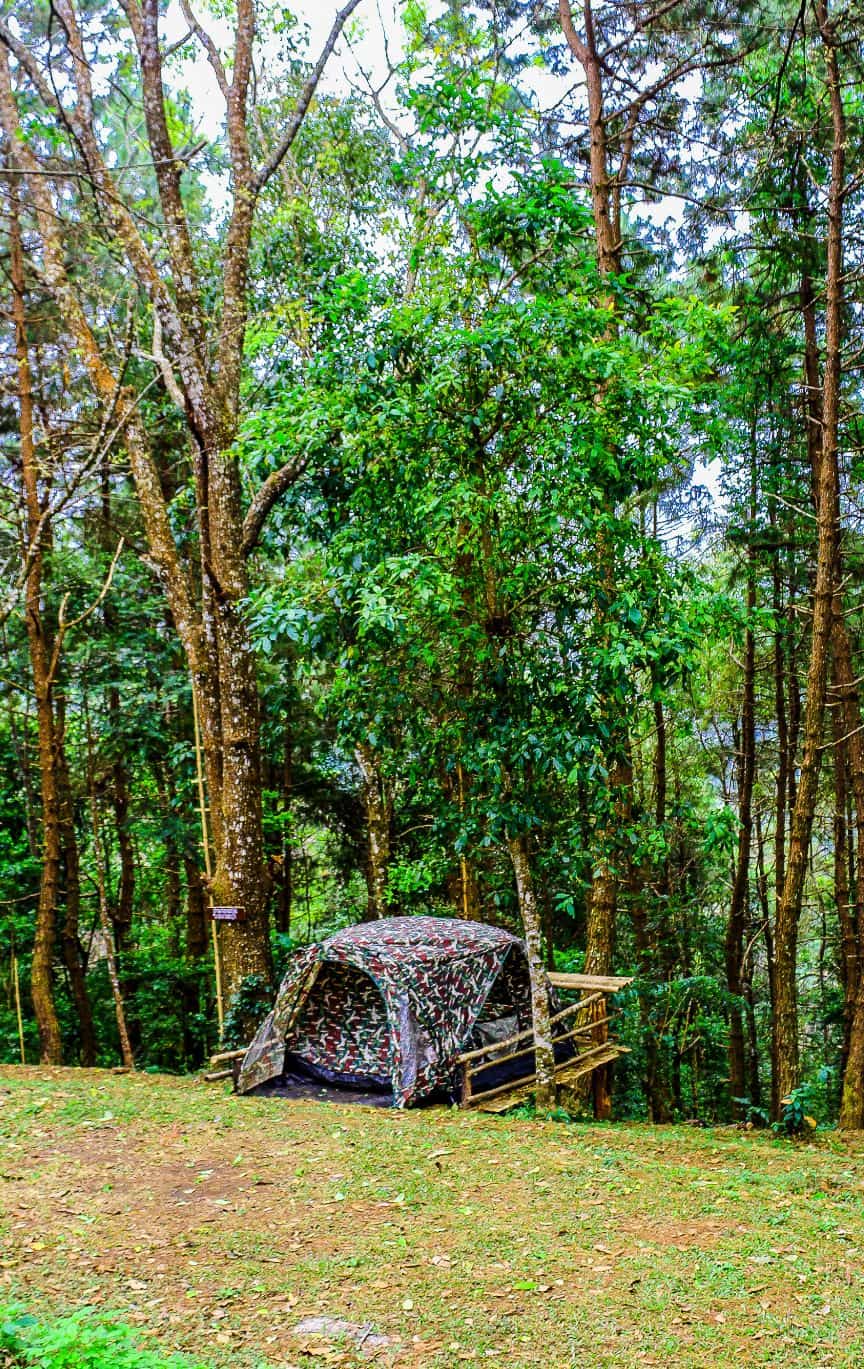
In the summer, for example, find a shady area. Windy areas could be nice but remember that too much wind will blow your tent away. Try to set up in an area with gentle breezes only.
In the winter, you must hide from windy areas. Trees and heavy vegetation serve as great windbreaks.
Make sure you know what direction the wind is blowing, and change your spot if the wind changes. The wind is a nuisance since it makes starting and containing a fire hard. Wind can also cause branches from trees to fall (I will talk about this in a bit).
Positioning your fire downwind from your tent is also very important, as it’ll stop smoke and fire blowing into your tent.
The sun rises northwest during summer and southeast during winter. Position your shelter opening southeast during the winter to get some warmth in the morning.
Remember that cold air settles and hot air rises, so camping on higher elevations will keep you warmer.
Also, remember to make sure your tent is well-insulated and protected during the winter. You can check out a few tips on making your tent winter-proof in our separate article.
Stay on the flattest ground you can find, otherwise, rainwater can collect under your shelter.
You should also avoid metal objects and being on very high ground in case of lightning.
Wood
This is mainly for campsites that permit fires, you can skip this section if your campsite doesn’t.
Campfires can mean life and death, which is why you should choose an area close to lots of wood. The wood has to be suitable for a fire though.
Wood small in size, around the size of a pencil, is perfect for starting a campfire. It also dries and burns very quickly.
Once the fire has started, you should get pieces of wood about the size of your wrist.
Downed dead trees and dead branches make for the perfect campfire wood because they’ve been dry for a long time.
If it recently rained and the wood is wet, large pieces of dead wood will be dry in the center.
Remember to always bring an axe for cutting wood, and never cut standing live trees! They’re only good if there’s no other option available.
I recommend bringing a bit of your own wood in case there is a limited supply of wood in your area. Also, try to bring a camping stove to save more wood for your campfire.
Always collect as much firewood as possible, you wouldn’t want to wake up to find some firewood during a cold night.
Widowmakers
Widowmakers are dead trees or branches that have a high possibility of falling on you.
When a tree dies, the fibers in the limbs break down. This causes the limbs to break off extremely easily. A sudden gust of wind, heavy rain, or some snow pileup could cause these limbs to snap off.
Why’s this a problem? Well, imagine you are right under one of these large branches. They are extremely heavy and can be several feet long.
The solution to this is to not camp near any dead trees. You can tell they’re dangerous if you see any rotting or decay at the base of the trunk.
You can never predict in which direction a tree or branch will fall. Do not gamble with nature.
Make sure to stay away from places with lots of boulders and a possible avalanche. They’re also technically “widowmakers”.
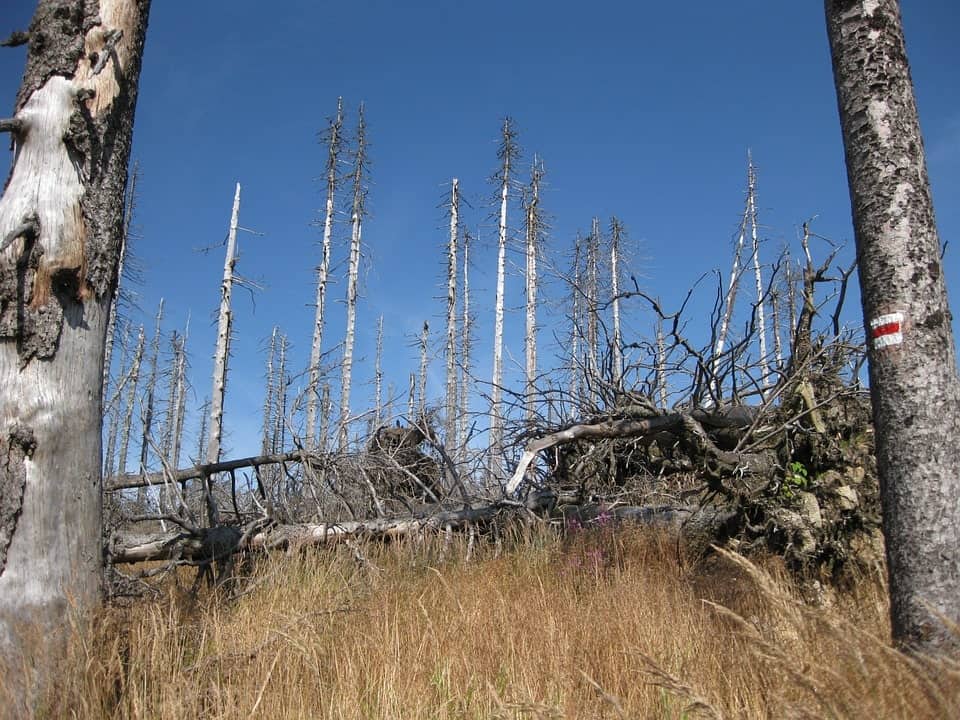
Wildlife
Not knowing the wildlife around your campsite can cost you a lot, even your life. Where are you camping?
Are you camping in the desert? Expect lots of insects and reptiles. Just make sure to know what type of area you are camping in.
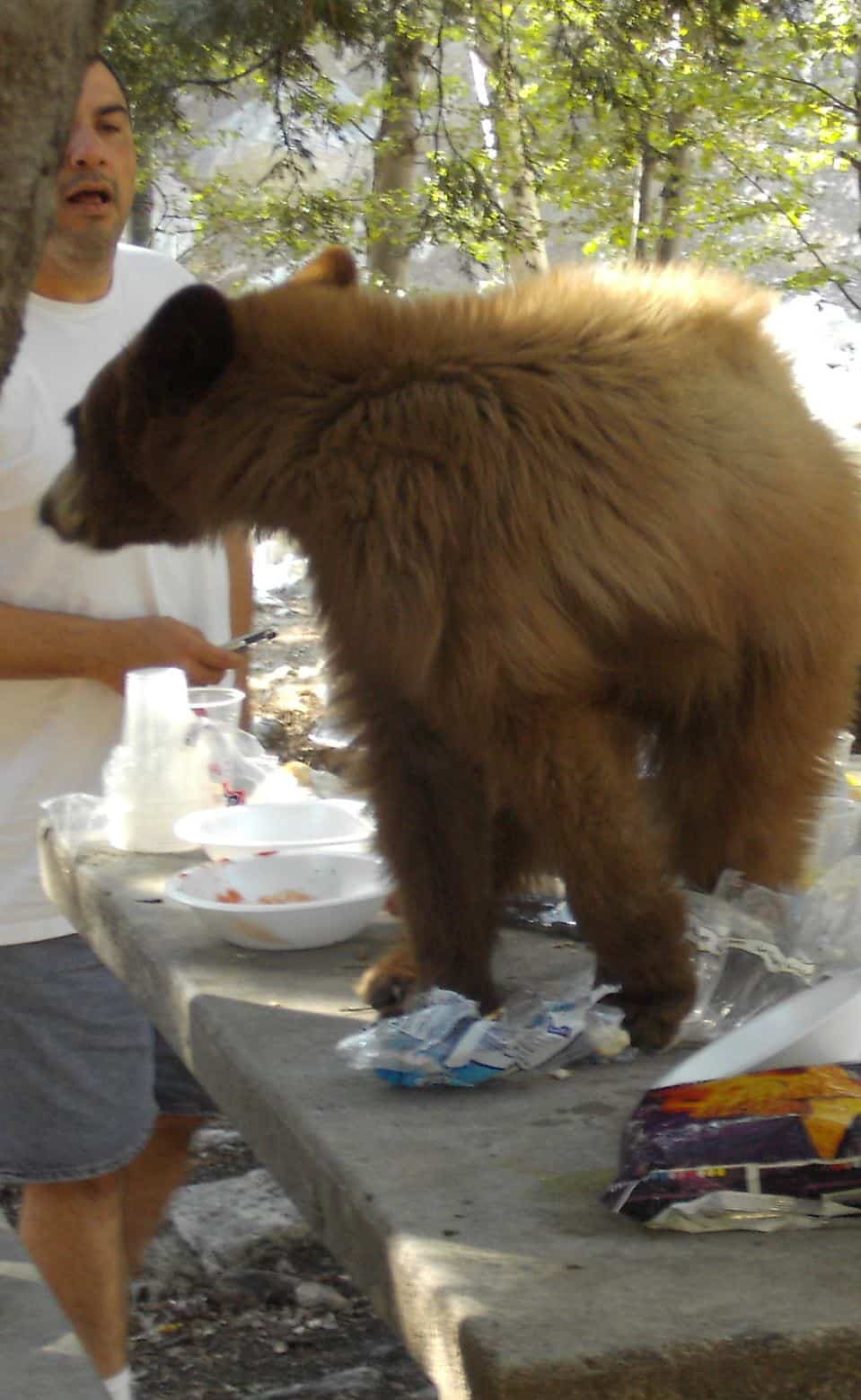
No matter where you are going, make sure to have a bear canister. Bear canisters will keep your food safe and are even bear proof (as you can see in the name).
If you bring a cooler, make sure it is bear proof. It’ll prevent any animals from getting in your food.
You can check out my review on my favorite cooler, the Yeti Tundra 35. It’s got way more features than just being bear proof.
Always have a weapon if you are in an area with big predators, and do not set up camp near an ant bed or a wasp nest.
If you see any animal tracks or animal poo, you will know animals lurk in the area frequently. This will also tell you the size of the animals you are camping around.
Always avoid mosquitos as they can spread lots of diseases. You can visit my article on mosquitoes where I give tips and tricks on getting rid of mosquitoes.
Pitch your tent around 10 feet above steam or lake, and you will avoid tons of insects. Most insects are usually around water.
Fires are also great to keep most insects away. They do not enjoy campfire smoke at all.
If you see any holes in the ground, stay away. These usually indicate ground squirrels but can also indicate snakes!
Wildlife doesn’t just mean animals, it also means plants! You must know how poison ivy and poison oak look like. If you accidentally go near poison ivy or oak, you will get a huge rash.
Extra Tips
Well, those were the five W’s! Here are a few more tips and suggestions for you.
Try to go to a campsite that is set up for waste removal. For example, some campgrounds will provide trash cans for you to throw your stuff away.
Do not leave anything behind! If there is no trash disposal, grab a trash bag before your trip.
Also, always share your plans and location with a trusted one in case anything goes wrong. It could save your life!
Sean is an accomplished backpacker with over 10 years of experience exploring the great outdoors. He has a passion for hiking, camping and off-grid living.

